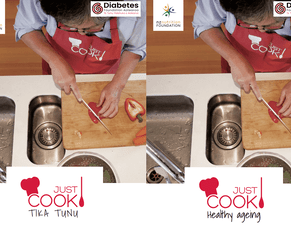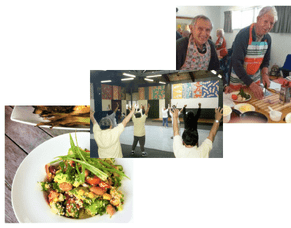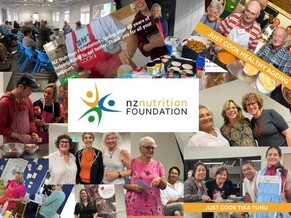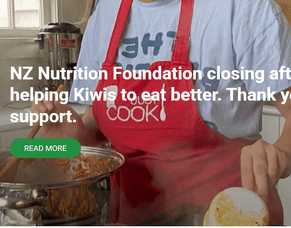All
All
Research
Team
Advocacy
History
DCSS audit
Community
Conference
Board
Health promotion
Posters
Type 2 diabetes
Healthy eating
In the News
Gardens4health
NZSSD
2024
Publication
Resources
Education
Primary care
Health education
Lifestyle Programme
New medication
Summit
DPT
Prevention
Schools
CMDHB
Nutrition
G4H
Gardening
Getwize2health
PHARMAC
Collaboration
Equity
Inequity
Annual Activity Report
Ethnic disparities
Lets Beat Diabetes
Type 1 diabetes
Youth
2023
Health & Wellness
Branding
Data
GDM
Medication
Presentation
Staff
2025
CGM
Community garden
Dcss
Disparity
Kidney disease
Maori
NZ Nutrition Foundation
NZNF
Programme
Te Tiriti O Waitangi
The Treaty of Waitangi
Bariatric project
Event
Healthy environment
Public health
South Auckland
2022
CMH
Inequalilities
Nurse Practitioner
Otara
Thank you
Workplaces
2016
Access
Cook'n Kiwi
Covid-19
Exercise
Gestational Diabetes
LBD
PhD
Qualitative
Quality Audit
WDD
WORTH study
2021
Adolescent
Article
Barriers
Campaign
Epidemiology
Medications
Middlemore
MyLifeMatters
Obesity
Partnership
Patient perspective
Pregnancy
Renal
Report
Throwback
Whakatauki
World Diabetes Day
2005
2011
2013
2014
2015
Bariatric Surgery
Celebration
Congratulations
Cooking
Diabetes NZ
Evaluation
FIZZ
Just Cook
Kaumatua
Nutrition Foundation
NZMJ
Outcomes
Pacifika
Physical activity
Pilot
Precision medicine
PVA
Quality improvement
Socioeconomic disparities
Sports
Sugar
Train the Trainer
Trulicity
Vision
2006
2008
2009
2010
2018
2019
Abstract
Adolescents
Aged care
Auckland Council
Audit
Cardiovascular disease
Christmas
Debate
Diabetes In Pregnancy
Diabetes resources
Environment
Governance
GW2H
IDF
Information sheets
Insulin
Marae
MasterClass
Medical director
MIT
Mortality
My Life Matters
Office hours
Patient Voice Aotearoa
Policy
Pre-Diabetes
Professional development
Recruitment
SADP
Safety
South Auckland Diabetes Project
Te Reo
The renew room
Vegetables
Websites
Whitiora
2007
2012
2017
21 years
Aim
Auckland
Australia
Awareness
Blood pressure
Breast feeding
Complications
Continuous Glucose Monitoring
Counties Manukau
Diabetes prevention
Dulaglutide
Ethics
Fairness
Fundraising
Gout
GP
Healthy Aging
Heart failure
Holiday
IGT
Impaired Glucose Tolerance
Kate Smallman
Motivation
Multi-ethnic
Older person
Organic
Pacificka
Performance
Petition
Planning
Plant Based
Podcast
Registry
Resilience
Risk
Role model
Screening
Shop for your life
Special K
Strategy
Sugar tax
Sugarbusters
Survey
Talanoa approach
Te Whatu Ora
Tikanga Māori
Trust Deed
Values
Vegetarian
Video
VLCD
1996
1998
2000
2001
2002
2003
2004
2020
Absenteeism
Activators
Adult nutrition
Advisor
ANZMOSS
Atrial Fibrillation
Beneficiary
Bequest
BMC Medicine
Budget
Canada
Cancer
Capacity building
CCRep
Child health
Cholesterol
City Mission
Climate action
Climate change
Co-design
Comic
Consultation
Continuous Glucose Monotiring
Dementia
Determinants of health
Diabetes
Diabetes Educator
Dietitian
Different Dinners
Dining out
Directory
Diversity
Donation
Door-To-Door study
Dry weather gardening
EATucation
Enablers
ESRD
Evluation
Excellence award
Eye Screening
FAQs
Fast food
Food literacy
Food poverty
Food sovereignty
Footcare
Free training
GLP1 receptor agonist
Green Lip Mussels
Guidance
HAT
Healthy Auckland Together
Healthy psychology
Healthy Tuckshops
High-risk population
HOPE programme
Hua parakore
Hyperglycaemia
IFG
In print
Innovation
Insulin pumps
Ironman
JAHA
Jardiance
Journal
Journal of American Heart Association
Kidney Society
Language
Māori
Māra
Mātanga Tapuhi
Mediray
Misinformation
Newletter
NGO
NoMoreFear
Nurse led
Nurse Prescriber
Nutritionist
NZ Health Survey
NZOTY
Older agegroup
Opening hours
Overweight
Passport study
Pānui
Photographs
Post covid
Presenteeism
Providers
Pumps
Randomised control trial
Rangatahi
RCT
Recipe
Rheumatic Heart Disease
Richard cooper
Roadshow
Rocketspark
Rotary
Satisfaction
Scabies
Science fest
SGLT2 Inhibitor
Sponsors
Stakeholders
Standards
Stocktake
Student nurse
Summer
Support Groups
Sustainable
Tamaki Makaurau
Technology
Tika Tunu
Tonga
Travel
Triathlon
Update
Water conservation
Women
Work experience
Workplace exercise
World Health Organisation
NZNF
ResearchTeamAdvocacyHistoryDCSS auditCommunityConferenceBoardHealth promotionPostersType 2 diabetesHealthy eatingIn the NewsGardens4healthNZSSD2024PublicationResourcesEducationPrimary careHealth educationLifestyle ProgrammeNew medicationSummitDPTPreventionSchoolsCMDHBNutritionG4HGardeningGetwize2healthPHARMACCollaborationEquityInequityAnnual Activity ReportEthnic disparitiesLets Beat DiabetesType 1 diabetesYouth2023Health & WellnessBrandingDataGDMMedicationPresentationStaff2025CGMCommunity gardenDcssDisparityKidney diseaseMaoriNZ Nutrition FoundationProgrammeTe Tiriti O WaitangiThe Treaty of WaitangiBariatric projectEventHealthy environmentPublic healthSouth Auckland2022CMHInequalilitiesNurse PractitionerOtaraThank youWorkplaces2016AccessCook'n KiwiCovid-19ExerciseGestational DiabetesLBDPhDQualitativeQuality AuditWDDWORTH study2021AdolescentArticleBarriersCampaignEpidemiologyMedicationsMiddlemoreMyLifeMattersObesityPartnershipPatient perspectivePregnancyRenalReportThrowbackWhakataukiWorld Diabetes Day20052011201320142015Bariatric SurgeryCelebrationCongratulationsCookingDiabetes NZEvaluationFIZZJust CookKaumatuaNutrition FoundationNZMJOutcomesPacifikaPhysical activityPilotPrecision medicinePVAQuality improvementSocioeconomic disparitiesSportsSugarTrain the TrainerTrulicityVision200620082009201020182019AbstractAdolescentsAged careAuckland CouncilAuditCardiovascular diseaseChristmasDebateDiabetes In PregnancyDiabetes resourcesEnvironmentGovernanceGW2HIDFInformation sheetsInsulinMaraeMasterClassMedical directorMITMortalityMy Life MattersOffice hoursPatient Voice AotearoaPolicyPre-DiabetesProfessional developmentRecruitmentSADPSafetySouth Auckland Diabetes ProjectTe ReoThe renew roomVegetablesWebsitesWhitiora20072012201721 yearsAimAucklandAustraliaAwarenessBlood pressureBreast feedingComplicationsContinuous Glucose MonitoringCounties ManukauDiabetes preventionDulaglutideEthicsFairnessFundraisingGoutGPHealthy AgingHeart failureHolidayIGTImpaired Glucose ToleranceKate SmallmanMotivationMulti-ethnicOlder personOrganicPacifickaPerformancePetitionPlanningPlant BasedPodcastRegistryResilienceRiskRole modelScreeningShop for your lifeSpecial KStrategySugar taxSugarbustersSurveyTalanoa approachTe Whatu OraTikanga MāoriTrust DeedValuesVegetarianVideoVLCD19961998200020012002200320042020AbsenteeismActivatorsAdult nutritionAdvisorANZMOSSAtrial FibrillationBeneficiaryBequestBMC MedicineBudgetCanadaCancerCapacity buildingCCRepChild healthCholesterolCity MissionClimate actionClimate changeCo-designComicConsultationContinuous Glucose MonotiringDementiaDeterminants of healthDiabetesDiabetes EducatorDietitianDifferent DinnersDining outDirectoryDiversityDonationDoor-To-Door studyDry weather gardeningEATucationEnablersESRDEvluationExcellence awardEye ScreeningFAQsFast foodFood literacyFood povertyFood sovereigntyFootcareFree trainingGLP1 receptor agonistGreen Lip MusselsGuidanceHATHealthy Auckland TogetherHealthy psychologyHealthy TuckshopsHigh-risk populationHOPE programmeHua parakoreHyperglycaemiaIFGIn printInnovationInsulin pumpsIronmanJAHAJardianceJournalJournal of American Heart AssociationKidney SocietyLanguageMāoriMāraMātanga TapuhiMedirayMisinformationNewletterNGONoMoreFearNurse ledNurse PrescriberNutritionistNZ Health SurveyNZOTYOlder agegroupOpening hoursOverweightPassport studyPānuiPhotographsPost covidPresenteeismProvidersPumpsRandomised control trialRangatahiRCTRecipeRheumatic Heart DiseaseRichard cooperRoadshowRocketsparkRotarySatisfactionScabiesScience festSGLT2 InhibitorSponsorsStakeholdersStandardsStocktakeStudent nurseSummerSupport GroupsSustainableTamaki MakaurauTechnologyTika TunuTongaTravelTriathlonUpdateWater conservationWomenWork experienceWorkplace exerciseWorld Health Organisation
TAGS










